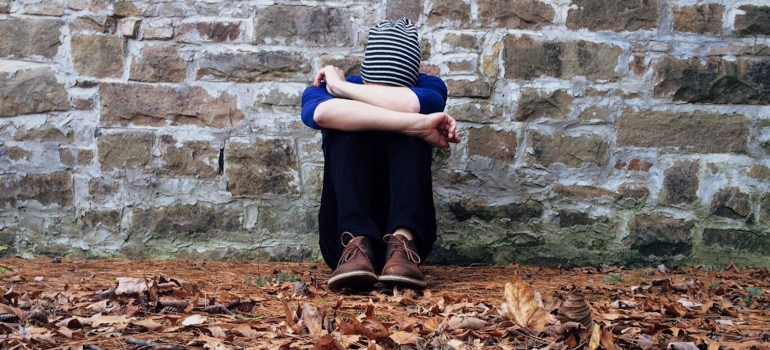As the crisp air arrives and leaves change color, many people in Massachusetts experience more than just the beauty of fall. The shorter days, cooler temperatures, and seasonal transitions can bring changes in mood and energy. This period often triggers unique challenges for individuals already managing stress, anxiety, or depression. Learning how to support your mental health as the seasons shift is essential to staying balanced. By understanding local factors, creating a stable routine, and knowing when to seek help, you can make autumn a season of growth instead of struggle.
Understanding Seasonal Mood Changes
Seasonal transitions often affect how people feel, both physically and emotionally. Many experience a drop in energy levels, trouble sleeping, or a tendency to withdraw from social activities. These are common patterns linked to changes in daylight and weather. For some, this seasonal response is mild, while others may experience Seasonal Affective Disorder (SAD), which mirrors depression.

You might ask yourself, “Why is my mental health worse in the fall?” Experts suggest the body’s internal clock, reduced sunlight, and disruptions to serotonin and melatonin balance are major factors. This means it’s not just about mood – it’s a biological shift. Recognizing these changes as valid can make it easier to seek support and build healthy coping strategies before symptoms intensify.
Signs to watch for in fall mood shifts:
- Difficulty getting out of bed in the morning
- Sudden changes in appetite or cravings for carbohydrates
- Increased irritability or mood swings
- Trouble concentrating at work or school
- Withdrawal from friends, family, or hobbies
Acknowledging these patterns early helps you take action before they progress into something more difficult to manage. By paying attention to small shifts, you give yourself the chance to adjust routines and protect your mental health before symptoms intensify.
Local Factors that Make a Difference in Massachusetts
Massachusetts has a unique climate that shapes mental health during fall. Days grow shorter quickly, with darkness setting in earlier than many expect. Combined with the state’s unpredictable storms, it can amplify stress and anxiety. The arrival of colder weather also means fewer outdoor activities, which reduces natural exposure to sunlight and physical exercise opportunities.
This is where understanding your environment becomes critical. Asking, “How does autumn affect mental health?” is especially relevant in New England, where the weather swings from bright sunny afternoons to gray rainy days. For residents managing ongoing conditions, this can increase vulnerability. Fortunately, mental health services in Massachusetts are widely available, providing access to therapy, community programs, and crisis lines for immediate support.
Coping with local challenges in Massachusetts requires awareness of how quickly the environment changes and building small but practical habits that keep you balanced:
- Plan activities during daylight hours whenever possible.
- Invest in warm outdoor gear so the weather doesn’t stop you from exercising.
- Track local weather forecasts to prepare mentally for sudden shifts.
- Use weekends to explore outdoor locations before winter fully sets in.
The more you anticipate seasonal challenges, the less disruptive they will feel.

Build a Light Routine that Actually Helps
One of the most powerful tools in the fall is light. Sunlight impacts circadian rhythm, which influences mood and sleep. For many, adding more light exposure can make a noticeable difference. Simple actions like morning walks, opening curtains early, or even using a light therapy lamp can help regulate your system.
However, a routine must include more than just light. Consistent sleep patterns, exercise, and structured breaks throughout the day build resilience. Integrating mindfulness or solution focused therapy techniques can also reduce stress by helping you identify immediate, practical steps rather than getting lost in overwhelming problems. The key is to build habits that feel manageable, not forced. Even small adjustments, like setting aside 15 minutes to move your body daily, can shift how you feel during darker months.
Practical habits for fall stability:
- Set a regular bedtime and wake-up time, even on weekends.
- Schedule short walks outside before 3 p.m. to maximize sunlight exposure.
- Add calming practices like deep breathing or guided meditation.
- Prepare balanced meals that stabilize energy rather than relying on sugar.
- Limit screen time before bed to avoid disrupting sleep cycles.
With repetition, these daily actions train your mind and body to adapt more smoothly to the seasonal changes. These small, consistent actions are some of the most effective ways to support your mental health as the seasons shift, ensuring you stay steady through the fall.
Social Connection Before Winter Arrives
Fall is the bridge between summer’s active social life and winter’s hibernation period. It’s easy to let colder days push you toward isolation, but staying socially connected is essential for well-being. Relationships provide accountability, comfort, and a sense of belonging, all of which protect against loneliness and depression.

This is the time to reconnect with friends, join local community events, or schedule family activities. For example, taking part in apple picking, fall festivals, or volunteering for local charities are simple ways to maintain connection. For those who prefer private support, virtual holistic therapy allows connection with a counselor from home. Online groups, classes, or even video chats with loved ones can help maintain interaction. The idea is to strengthen your support network now, so when winter’s challenges arrive, you already have people and systems in place to help you cope.
Stress and Anxiety Tools for Storm Season
Massachusetts residents know fall also means unpredictable storms and early reminders of winter weather. For people with anxiety, uncertainty about travel, school schedules, or work disruptions can add layers of stress. Developing coping strategies ahead of time is vital.
Practical tools include grounding techniques, controlled breathing, and journaling. Physical activity also helps burn off nervous energy. When storms feel overwhelming, remind yourself of your safety plan – whether it’s a backup power source, stocked supplies, or simply knowing where to go for support. Some individuals also find value in specialized care; personality disorder treatment centers often incorporate skill-building therapies that help regulate emotions during chaotic times. Even if you do not require intensive treatment, learning these tools from structured programs or counseling can improve daily resilience.
Coping tools for storm anxiety:
- Practice 4-7-8 breathing to calm your nervous system.
- Keep a journal to track storm-related worries and patterns.
- Build an emergency kit to reduce feelings of unpreparedness.
- Create a relaxation space at home with blankets, candles, or calming music.
- Set limits on weather news consumption if it increases anxiety.
Taking small steps toward preparedness reduces the overwhelming impact of unexpected weather stressors.
When to Consider Professional Support
Sometimes, self-care strategies aren’t enough. If symptoms last more than two weeks or interfere with work, school, or relationships, professional help should be considered. Warning signs include persistent sadness, trouble focusing, changes in eating or sleeping, or loss of interest in activities you once enjoyed.
In Massachusetts, resources are broad. Evidence-based approaches like CBT or solution focused therapy can provide structure, while more comprehensive care may be needed for complex conditions. If you feel unsafe with your thoughts, immediate help is essential—dial 988 Suicide & Crisis Lifeline or use the Massachusetts Behavioral Health Help Line for real-time guidance. These services connect you quickly with professionals trained to handle crises.
Professional support is not limited to crisis intervention. It can also mean talking with a counselor once a week to process stress, joining group sessions, or exploring telehealth options. For some, engaging in specialized care such as trauma programs or intensive outpatient therapy ensures deeper healing.

Resources in Massachusetts
If you or someone you know is struggling, here are important resources to keep in mind. These services offer quick access to help, whether you need immediate crisis support or ongoing guidance:
- 988 Suicide & Crisis Lifeline – available 24/7 for anyone experiencing distress or suicidal thoughts.
- Massachusetts Behavioral Health Help Line – connects you to local programs, therapists, and emergency services.
- Local hospitals and clinics across the state that specialize in psychiatric and therapeutic care.
- Options for community-based programs, including support groups for depression, anxiety, or addiction.
- Access to providers offering telehealth, including virtual holistic therapy, which helps reduce barriers like transportation or weather challenges.
Exploring these resources now ensures you are prepared if your mental health declines during the colder months. Being proactive about options can mean faster access when support is most needed.
Making Fall a Time to Support Your Mental Health as the Seasons Shift
Fall is a season of transition, but it doesn’t have to mean decline in your well-being. By understanding local factors, building a daily routine, maintaining social ties, and recognizing when to ask for help, you can thrive during the colder months. East Point Behavioral Health is here to remind you that resources are available and that you’re not alone in facing seasonal challenges. With awareness, planning, and the right support, it is absolutely possible to support your mental health as the seasons shift and create a fall filled with balance and resilience.



